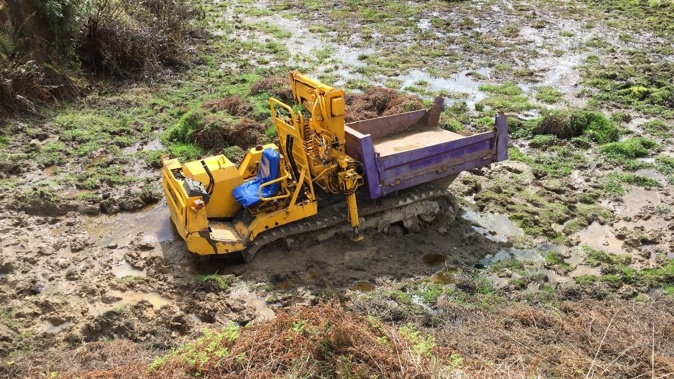

There is a “real risk” a miscarriage of justice occurred for a couple who received a jail sentence and heavy fine for draining wetlands on their property.
Kāpiti Coast couple Adrian Neil Page and Julie Maree Crosbie faced 35 charges under the Resource Management Act after they tried to reclaim wetlands while converting a property Crosbie owned back into a beef farm.
The charges were brought by the Greater Wellington Regional Council.
Some of the charges alleged the couple disturbed wetlands, allowed cattle access to wetlands, deposited material into water, took water and deposited soil on a riverbed between 2019 and 2021.
Page and Crosbie denied the charges, representing themselves in the district court, but were found guilty and convicted.
Page was imprisoned for three months – an unusual outcome in an environment case – and Crosbie was fined $118,750.
The council claimed, and the district court accepted, that Crosbie’s Paraparaumu property included six natural wetlands.
The couple, who argued that the wetlands were not natural but impacted or created by human activity, appealed against their convictions to the High Court but were unsuccessful.
However, the Court of Appeal has now granted an application for a second appeal, together with leave to bring fresh evidence before the courts.
The fresh evidence would provide a counter-argument to the regional council’s expert witness’ evidence which identified the wetlands as natural.
The couple claims that a miscarriage of justice has occurred because the presence of natural wetlands on Crosbie’s property has not been proved beyond reasonable doubt.
“We consider the proposed evidence may render the convictions unsafe, either in total or in part, such that its exclusion risks a miscarriage of justice,” the Court of Appeal decision said.
Page and Crosbie also raised concern about the “untimeliness” of disclosure, saying it impeded their ability to defend the charges in the time available before their trial.
The couple were given the council’s information on USB drives on February 26 and March 19, 2021, for a May hearing, but Page explained to the court that he lacked IT skills and asked for hard copies.
These were delivered in three packages on May 8 and May 14 – more than 2800 pages and associated videos – with the last of it arriving only 10 days before the couple’s court hearing.
“We consider that the proposed fresh evidence highlights that the outcome of the trial was affected by the absence of any expert challenges to the (council’s) principal ecology witness,” the three Court of Appeal judges said.
“The absence of such evidence together with the late disclosure raises a real risk that the applicants’ convictions may be unsafe and a miscarriage of justice may have occurred.”

Take your Radio, Podcasts and Music with you









